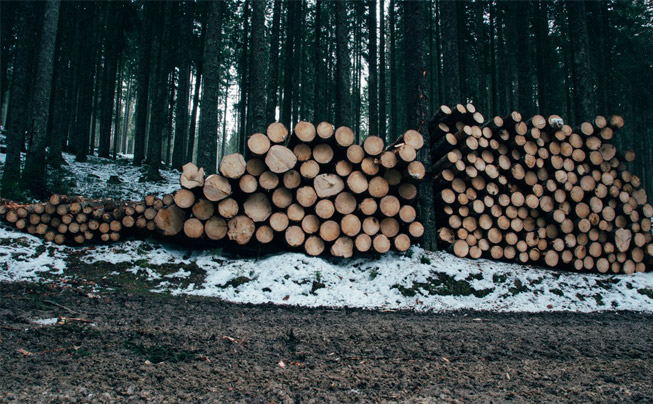Produce biofuel with the reforestation of deserts
What is biofuel?
Biofuel is a generic name for various kinds of fuels that are made from biomass. Because they are renewable fuels, they are an alternative to fossil fuels. The stocks of fossil fuels are limited and not renewable. There are different forms of biofuel, namely: solid, liquid and gaseous. Liquid and gaseous biofuels are obtained from a solid biomass such as dead plants.
Producing biofuels
In certain areas, only fast-growing trees can be planted in order to obtain biofuel. If we need to plant trees for biofuel, it is not ethical to plant these trees on fertile land, because this land is needed for the production of food. But on presently eroded areas planting trees in order to produce biofuel does not harm the food supply chain and therefore this is morally acceptable. It can even offer a living and income for the actual poor inhabitants who hardly are able to get an income from their degraded soils. Various techniques are being developed to distil and produce biofuel from trees or their nuts in an ecologically safe way. It is also possible to obtain wood tar from leftovers from the wood processing industry, which can be distilled, among other things, into biofuel in various forms. In this simple way household fuel can become available to the local population.
Advantages of biofuels
By planting trees for biofuel, the trees disconnect CO2 from the air during their lifetime. This is an important part in reducing the CO2 concentration and very important to try to minimize climate change. Additionally, 70% less soot and other particles are released by the combustion of some biofuels.
Disadvantages of biofuel
One of the disadvantages of biofuels is the need of fertilizers that may be necessary for the growth of the trees. The excessive use of fertilizers can lead to emissions of the greenhouse gas nitrous oxide (N2O). Nitrous oxide has a much stronger greenhouse effect than CO2.

Charcoal
It is also very interesting to produce charcoal from planted trees. If we produce charcoal from the already existing trees from nature, we add CO2 into the atmosphere. If, however, we plant trees in order to produce charcoal we do not add extra CO2: the trees unbind the CO2 and while turning it into charcoals and burning it in order to cook and heat, we add the same quantity of CO2 again into the atmosphere. Two third of humanity still cooks and heats with charcoal and if produced by planted trees this way of cooking and heating is much cleaner than if it’s done by burning fossil fuels that bring millions of tons of extra CO2 in the atmosphere.
Conclusion
- Charcoal from planted trees is a cradle to cradle solution
- Fossil fuels are not a cradle to cradle solution and make the CO2 concentration in the atmosphere rise.
With the Groasis Waterboxx® and Growboxx® plant cocoon, people – who have almost no money and live on degraded soils – can plant their own trees for wood production. They can use the wood as an alternative to heat up their house or in order to cook. This cradle to cradle solution being available for millions of people now through using the Waterboxx® and Growboxx® plant cocoon will help us reducing the CO2 pollution.















